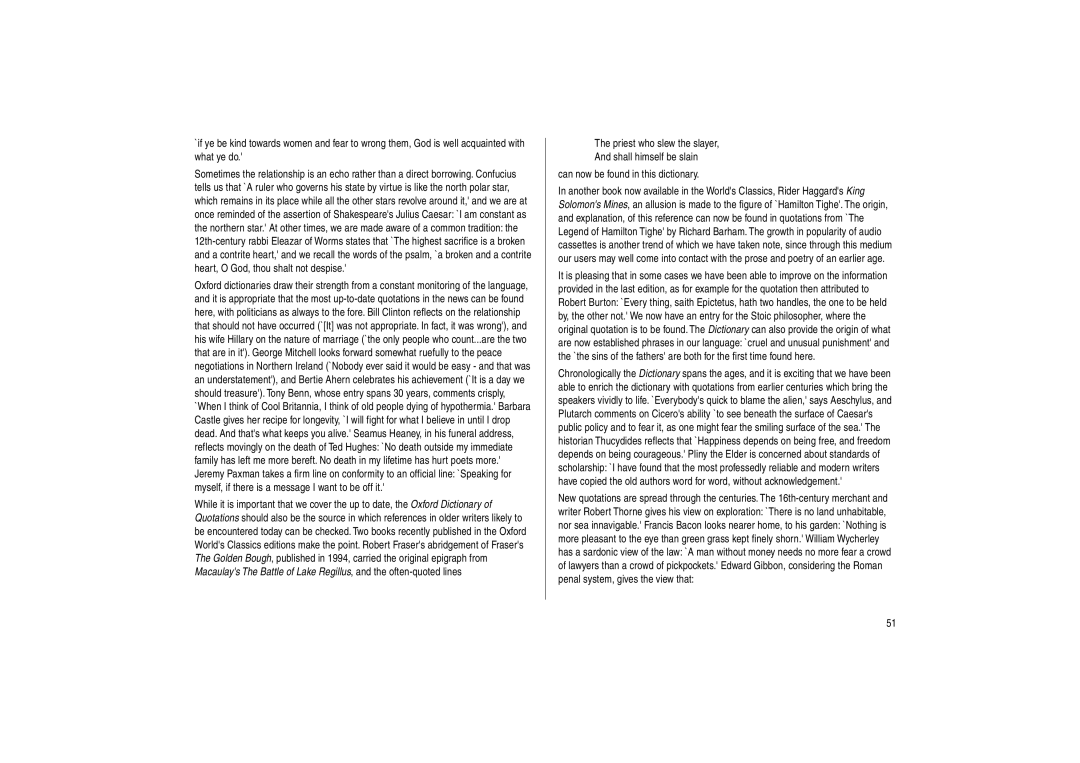`if ye be kind towards women and fear to wrong them, God is well acquainted with what ye do.'
Sometimes the relationship is an echo rather than a direct borrowing. Confucius tells us that `A ruler who governs his state by virtue is like the north polar star, which remains in its place while all the other stars revolve around it,' and we are at once reminded of the assertion of Shakespeare's Julius Caesar: `I am constant as the northern star.' At other times, we are made aware of a common tradition: the
Oxford dictionaries draw their strength from a constant monitoring of the language, and it is appropriate that the most
While it is important that we cover the up to date, the Oxford Dictionary of Quotations should also be the source in which references in older writers likely to be encountered today can be checked. Two books recently published in the Oxford World's Classics editions make the point. Robert Fraser's abridgement of Fraser's The Golden Bough, published in 1994, carried the original epigraph from Macaulay's The Battle of Lake Regillus, and the
The priest who slew the slayer,
And shall himself be slain
can now be found in this dictionary.
In another book now available in the World's Classics, Rider Haggard's King Solomon's Mines, an allusion is made to the figure of `Hamilton Tighe'. The origin, and explanation, of this reference can now be found in quotations from `The Legend of Hamilton Tighe' by Richard Barham. The growth in popularity of audio cassettes is another trend of which we have taken note, since through this medium our users may well come into contact with the prose and poetry of an earlier age.
It is pleasing that in some cases we have been able to improve on the information provided in the last edition, as for example for the quotation then attributed to Robert Burton: `Every thing, saith Epictetus, hath two handles, the one to be held by, the other not.' We now have an entry for the Stoic philosopher, where the original quotation is to be found. The Dictionary can also provide the origin of what are now established phrases in our language: `cruel and unusual punishment' and the `the sins of the fathers' are both for the first time found here.
Chronologically the Dictionary spans the ages, and it is exciting that we have been able to enrich the dictionary with quotations from earlier centuries which bring the speakers vividly to life. `Everybody's quick to blame the alien,' says Aeschylus, and Plutarch comments on Cicero's ability `to see beneath the surface of Caesar's public policy and to fear it, as one might fear the smiling surface of the sea.' The historian Thucydides reflects that `Happiness depends on being free, and freedom depends on being courageous.' Pliny the Elder is concerned about standards of scholarship: `I have found that the most professedly reliable and modern writers have copied the old authors word for word, without acknowledgement.'
New quotations are spread through the centuries. The
51
